
MBTAAnalysis: A look inside the MBTA
0 Comments
/
The MBTA shuttles over a million passengers a day around Greater…
 https://pioneerinstitute.org/wp-content/uploads/CloseupClock-1.jpg
739
1244
Mary Connaughton
https://pioneerinstitute.org/wp-content/uploads/logo_440x96.png
Mary Connaughton2017-02-20 12:34:192017-02-21 09:47:58The Clock is Ticking…….
https://pioneerinstitute.org/wp-content/uploads/CloseupClock-1.jpg
739
1244
Mary Connaughton
https://pioneerinstitute.org/wp-content/uploads/logo_440x96.png
Mary Connaughton2017-02-20 12:34:192017-02-21 09:47:58The Clock is Ticking…….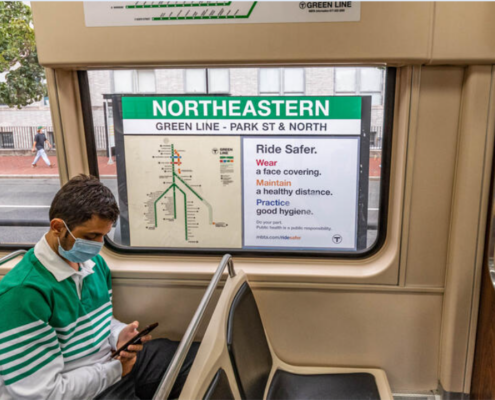
How Public Transportation’s Efficiency Changed During Covid
The MBTA's efficiency plummeted during Covid; as people chose either personal transportation or personal work, the MBTA lost significant ridership. However, it maintained its vehicle fleet and the depth of its services even as its operating cost per passenger mile increased dramatically.
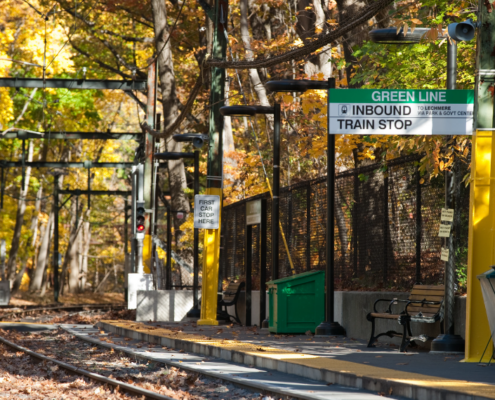
An Open Letter to the Governor’s Transportation Task Force
An Open Letter to the Governor’s Transportation Task Force:
As…

Rolling the Retirement Dice: Why the MBTA Should Steer Clear of Pension Bonds
This study illustrates why issuing pension obligation bonds (POBs) to refinance $360 million of the MBTA Retirement Fund’s (MBTARF’s) $1.3 billion unfunded pension liability would only compound the T’s already serious financial risks.

The MBTA’s Automated Fare Collection Modernization Contract: Over-Budget And Behind Schedule, But Now Back On Track
This new study unearths previously unseen communications between the MBTA and its contractors, showing that the MBTA’s efforts to modernize its fare collection system, including allowing payments with credit cards and bringing “tap and go” technology to Commuter Rail and ferry lines, was riddled with technological challenges and difficulties overseeing contractors as early as 2019, culminating in a 3-year delay to the project’s full implementation. The report also highlights key insights regarding the MBTA’s administrative capacity and hiring efforts needed to oversee the project’s implementation.
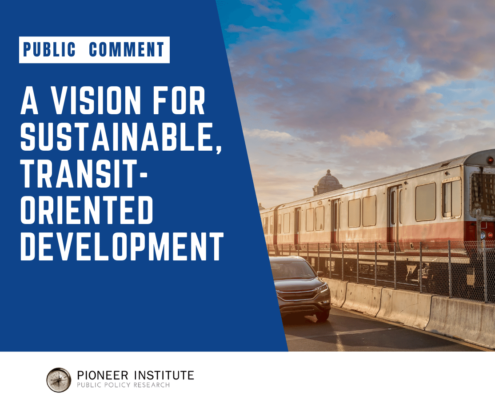
A Vision for Sustainable, Transit-oriented Development
In this public comment, Pioneer Institute examines the Massachusetts Department of Housing and Community Development's guidelines on how localities can comply with new zoning mandates around MBTA stations. While some of the compliance criteria and goal-setting language need further clarification and adjustment, overall Pioneer Institute is supportive of the vision for sustainable, transit-oriented development which, if properly implemented, will expand economic opportunity to a new generation of the state's residents.

Bus Rapid Transit: Costs and Benefits of a Transit Alternative
Bus rapid transit (BRT) incorporates unique features such as dedicated lanes to provide reliable and cost-effective service while reducing congestion and its detrimental environmental impacts.

The MBTA’s Looming Bus and Green Line Fare Evasion Crisis
This report warns that the MBTA will likely face a fare evasion crisis when it transitions to all-door boarding on buses, the Green Line, and the Mattapan trolley in 2023. General Manager Steve Poftak and MBTA staff have signaled the potential for a $25–30 million spike in fare evasion costs when the new AFC 2.0 system is implemented unless the MBTA institutes meaningful, enforceable penalties for fare evaders. In this report, Pioneer Institute makes recommendations for managing the AFC 2.0 contract and related fare evasion procedures going forward.
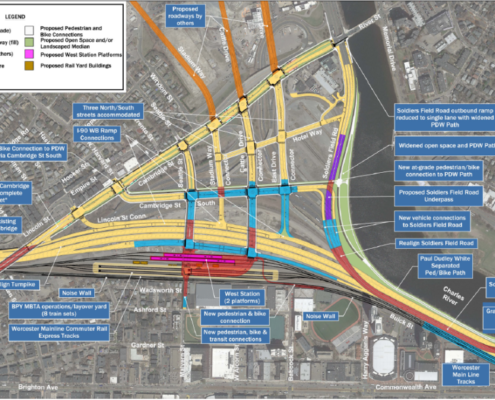
Public Comment on I-90 Allston Multimodal Project
Last year, Pioneer Institute proposed that the Massachusetts Department of Transportation (MassDOT) revise its Scoping Report on the I-90 Allston Multimodal Project and recommend an additional option - a modified at-grade option for the throat area - to the Federal Highway Administration (FHWA). The Institute believed then and continues to believe that an all at-grade design will shorten construction time, lower costs, create fewer negative economic and congestion impacts, and improve neighborhood access to parkland along the Charles River.

Public Testimony to the Joint Meeting of the MassDOT Board of Directors and Fiscal Management Control Board
Public Testimony to the Joint Meeting of the MassDOT Board of Directors and Fiscal Management Control Board regarding the Allston Multimodal Project, on Oct. 19th, 2020 by Mary Z. Connaughton, Pioneer Institute.

Telecommuting Survey Reveals Potential for Greater Shift Towards Remote Work After COVID-19 Pandemic
Citing an avoidance of the commute and more flexible scheduling, nearly 63 percent of respondents to Pioneer Institute’s survey, “Will You Commute To Work When The COVID-19 Crisis Is Over?” expressed a preference to work from home one day a week, and a plurality preferred two to three days a week, even after a COVID-19 vaccine is available.
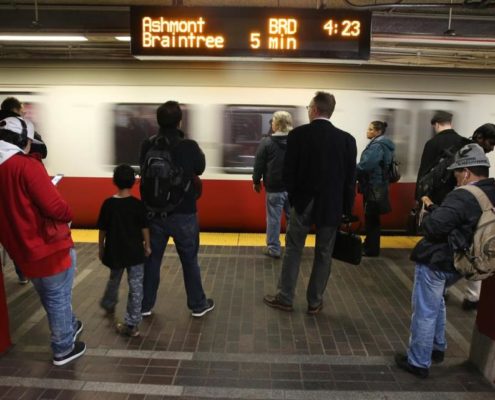
U.S. Transit Systems and COVID-19: How does the MBTA Compare?
The MBTA is taking a number of important steps to mitigate risks associated with the coronavirus, but some transit agencies around the country - from Philadelphia to San Francisco - have done significantly more.

A Control Board Equipped for for the Next Phase of MBTA Reform
A new policy brief by Pioneer Institute Executive Director Jim Stergios calls on the Massachusetts Legislature to extend the life of the MBTA’s Fiscal and Management Control Board beyond the current fiscal year ending on June 30, and adjust it to address the agency's new challenges.

Public Comment on MassDOT’s I-90 Allston Multimodal Project National Environmental Policy Act Review Scoping Report
Pioneer Institute’s Public Comment calls on the Massachusetts Department of Transportation (MassDOT) to revise its Scoping Report on the I-90 Allston Multimodal Project and recommend an additional option to the Federal Highway Administration (FHWA). The Institute believes that closer analysis of an at-grade option may reveal that an at-grade design will shorten construction time, lower costs, create fewer negative economic and congestion impacts, and improve neighborhood access to parkland along the Charles River.
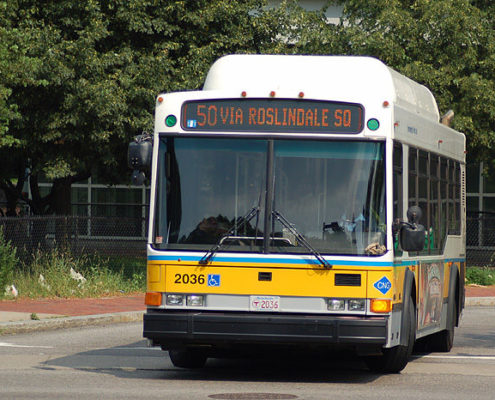
The Merit Rating Board: Review and Recommendations
Significant administrative failings involving the Registry of Motor Vehicles have drawn attention to an entity called the Merit Rating Board (MRB or the Board). MRB’s administrative personnel and processes have been the subject of sharp criticism, and also extensive ongoing reform efforts. This policy brief reviews the relevant circumstances, and makes recommendations for consideration by MRB and other government personnel as they move forward.
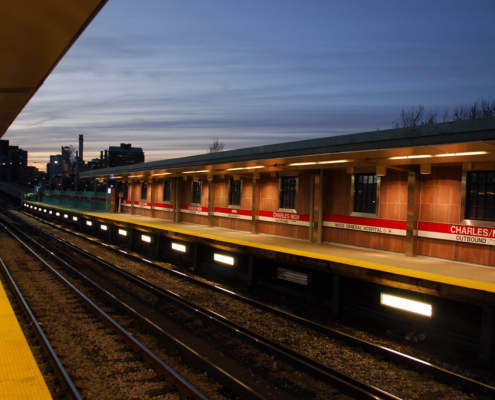
The $8.5 Billion Marshall Plan for MBTA Needs
Going from much larger capital budgets to delivering the actual projects needed to repair and modernize the MBTA will require a “Marshall Plan” that includes improving T hiring practices and internal organization, as well as the strategic use of external resources.
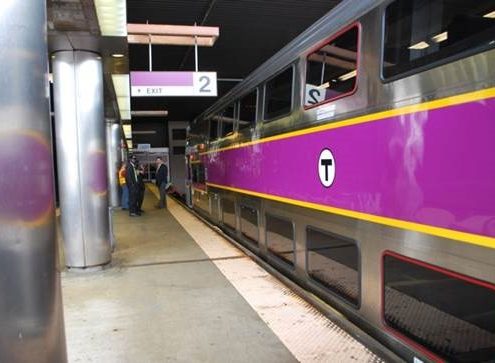
The MBTAs Capital Spending Crisis
The Massachusetts Legislature must free the MBTA from overly restrictive procurement methods and the T must dramatically increase its project and contract management capacity if it is to reach aggressive capital spending targets aimed at upgrading the system and accommodating more riders.

Williams and Markopolos Were Proven Right: MBTARF Was Underreporting Its Unfunded Pension Liabilities Just as the Whistleblowers Said in Their 2015 Report
In a new brief, Pioneer shows that whistleblowers’ 2015 claims that the MBTA Retirement Fund (MBTARF) has been underreporting its unfunded pension liabilities was correct. In their study, Boston University Professor Mark T. Williams and Bernie Madoff whistleblower Harry Markopolos outlined three specific ways in which the T pension fund was misrepresenting its liability, by a total of $280 million. At the time, MBTARF vigorously refuted the validity of the findings, but a new Pioneer brief presents in-depth analysis vindicating Williams and Markopolos.
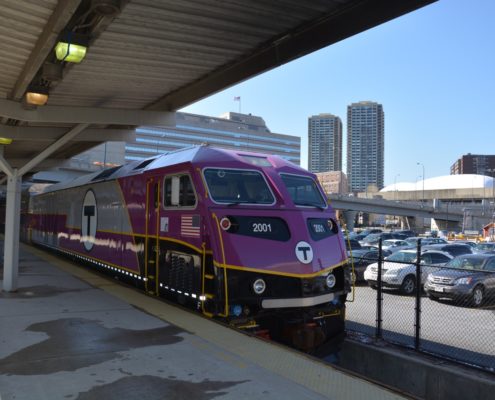
Commuter Rail Twitter Reveals History of Delays
A review of four years of MBTA commuter rail Twitter alerts reveals that the number of trains that are “delayed” has fallen, but there is a commensurate increase in the number of trains classified as “running behind,” leaving the overall number of late trains largely unchanged.

What Ever Happened to Flagger Reform?
The unusual way in which Massachusetts determines prevailing wages and the fact that civilian flaggers are subject to state prevailing wage law explain why a 2008 law that ended the Commonwealth’s status as the only state to require police at road construction projects has failed to generate substantial savings.

Looking Back at Longfellow Bridge
Reconstruction of the Longfellow Bridge is now complete, and the co-author of a landmark study about the Longfellow’s restoration sees reasons to be optimistic that the Commonwealth is becoming more responsible about maintaining its infrastructure assets.
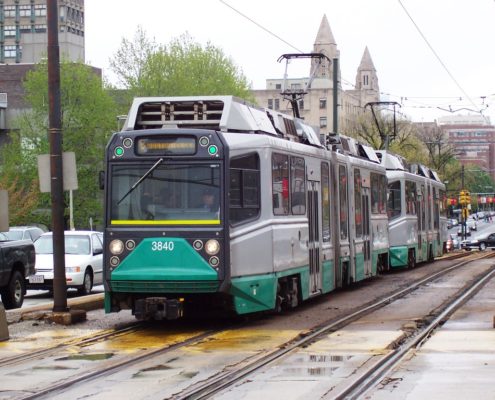
On the Governor’s Commission on the Future of Transportation
Pioneer Institute is grateful for the opportunity to share brief thoughts on the work of the Governor’s Commission on the Future of Transportation. Our comments are focused on four issues: (1) governance, (2) budgeting and operations, (3) the role of public transportation at a time of rapid private market transformation, and (4) the need to set increasing ridership as the top strategic transit goal.

Increasing MBTA Ridership and Revenue with Company Commuter Benefit Programs
This report illustrates that increased use of employer-sponsored commuter benefit programs could boost MBTA revenue significantly, reduce employee commuting costs, provide employer savings, reduce traffic congestion and yield environmental benefits.

Testimony to the Senate Committee on Post Audit and Oversight on MBTA Bus Maintenance Reform
Charles Chieppo provides public testimony regarding the "Post Audit and Oversight on MBTA Bus Maintenance Reform."
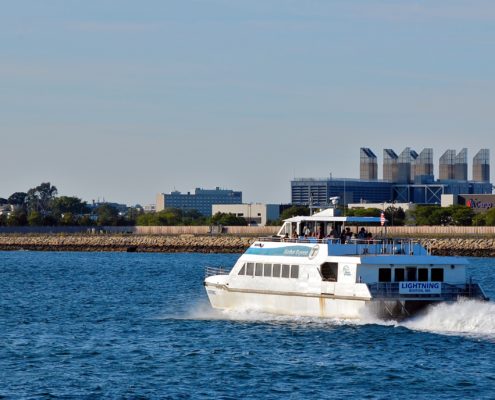
Is it time to expand water transportation in Greater Boston?
A comprehensive study of the MBTA ferry service’s performance as a transit mode and how it compares to other ferry operators nationwide offers useful insights for policy discussion on future water transportation in Massachusetts Bay, according to a new study published by Pioneer Institute.

The Bombshell Cheiron Report: The MBTA Just Got A $1.485 Billion Pension Bill That It Can’t Possibly Pay
This report asserts that with the current MBTA pension agreement set to expire in June 2018 and a new evaluation projecting a $1.485 billion increase in retirement costs over the next 18 years under terms of the current agreement, the T’s Fiscal and Management Control Board (FMCB) should take immediate action to protect the authority’s precarious finances.
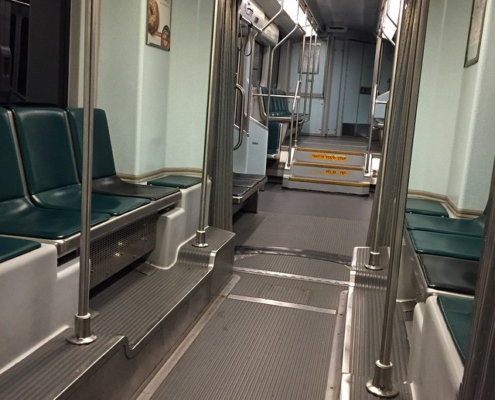
Forensic Mysteries from the MBTA Retirement Fund’s Actuarial Reports
This report documents significant deficiencies in the actuarial valuations produced by the Massachusetts Bay Transportation Authority Retirement Fund (MBTARF) since 1990. Analysis of about a quarter-century of data suggests that the MBTARF's actuarial reports may have deviated considerably from the true cost of pension benefits. As of yearend 2015, the fund had an estimated unfunded liability of about $944 million.
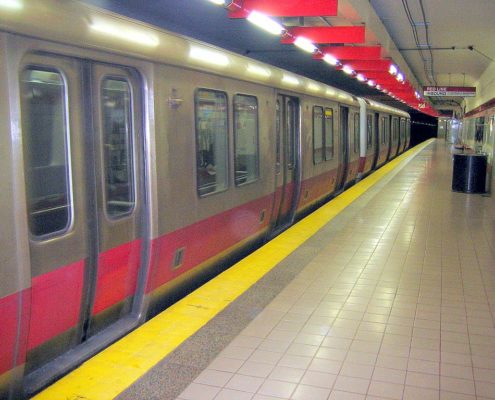
Putting The T On A Clear Path To High Performance
Much has been accomplished in the past 20 months. The draft strategic plan, however, correctly notes that the MBTA is still nowhere near where the riding public needs it to be. Pioneer Institute believes that getting there will require maintaining the same kind of discipline and urgency that the Control Board has made possible, but over a longer and more explicitly defined period.
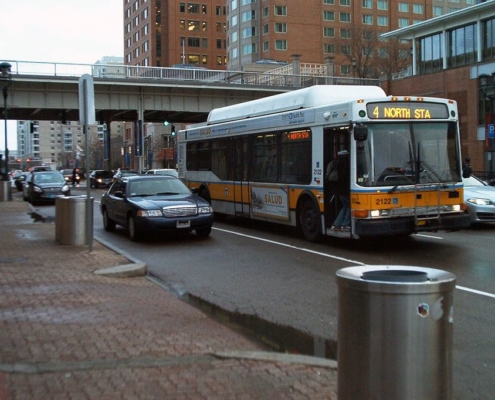
2015 MBTA Bus Maintenance Costs Were Nation’s Highest
This report compares MBTA bus maintenance costs with those of five transit agencies identified as peers by the Integrated National Transit Database Analysis System. In 2015, the MBTA had the highest vehicle maintenance cost per hour of bus operation of the six transit agencies identified as peers by INTDAS.

Recommendation to the FMCB: Retain an Independent Auditor and Actuary to Review the MBTARF
The present policy paper argues that FMCB must conduct an independent audit and actuarial valuation of the fund, because of specific failures and omissions even in the limited work that FTI did. In doing so, we find that in opposition to the claims of FTI, the claims of potential malfeasance and poor management by the MBTARF Board, which came from noted whistleblower Harry Markopolos and Boston University Professor Mark Williams, were likely accurate.

Fixing the MBTA Retirement Fund: Reforming a Pension Fund in Crisis
This report examines the MBTA Retirement Fund's unfunded liability and compares MBTA and state employee and employer retirement contributions. It recommends that the MBTA assess the feasibility of moving its employees out of the Social Security system and transfer investment management responsibility for its pension fund to the commonwealth’s Pension Reserves Investment Management board as initial steps toward terminating the MBTA Retirement Fund (MBTARF).
